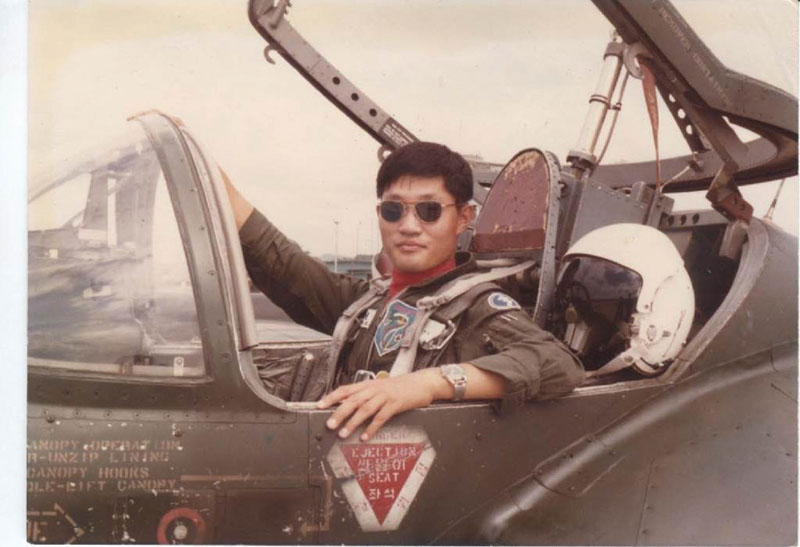
For a young David Chulwoo Lee, his colleagues joked that he had missed the economic boom of the 1980s by the time he arrived in New York City from Korea. However, Lee decided to create his own prosperity, leaving behind his homeland in search of the American dream.
Since then, Lee has become something of an ambassador between South Korea and the United States, building bridges between leaders and innovators.
Ever engaged with community leadership, Lee founded the Korean American Leaders Conference that brought together this past summer elected officials and top Korean leaders in the realms of the clergy, business, and politics.
Among many other positions, he has also served as the deputy commissioner of information technology for Nassau County, director of multicultural development for the town of North Hempstead and trade liaison officer with the state’s Empire State Development Corporation.
Lee was born in the Gangwon Province of South Korea in 1955, just two years after the Korean War ended. The province was once unified before the division of Korea and was situated right on the border of the demilitarized zone (DMZ).
His noble, land-owning family survived despite being targeted by North Koreans. He remembered seeing the aftermath of the destruction, remnants of the war, including destroyed tanks and cannons.
“In some cases, human bones,” Lee said.

Growing up, Lee attended a school built by American soldiers. To combat the famine, Americans also helped distribute milk and corn.
Lee carried on and eventually enrolled in the Korean Air Force Academy after high school, becoming a pilot, instructor, then department chairman.
“The current chief chairman of the joint chiefs of staff in Korea, he was my cadet. I taught him. Now, he’s a four-star general, and he represents the whole Korean army,” Lee said.
Lee also enrolled at Yonsei University, where he obtained his master’s degree in political science.
“I found out if I studied political science, that doesn’t necessarily lead to be a politician. I see that politics is networking and money, no knowledge, so OK forget about it,” Lee said. “That’s why I moved to America.”
Securing a scholarship from Rotary International, Lee immigrated to the U.S. in 1988, also joining hismother who had already established herself here.
When he arrived in Manhattan, he found himself in the midst of an economic slowdown.
“Even though America was not so great at that time, I saw great things were going to come. That’s what I looked for,” Lee said. “I saw the value of liberty, value of democracy. I liked that.”
And so, Lee got to work, endeavoring to get into the burgeoning field of information technology.
“I enjoyed to study that, so I got a new dream and the dream came true,” he said.
The scholarship enabled him to enroll at Brooklyn College, where he studied computer science. Since the scholarship only lasted one year, he soon had to find his first job repairing computer monitors in Ozone Park, Queens.
He worked his way up the ranks through other positions to become a general manager, heading a national marketing program.
“With that experience, I could build my own company,” he said. “I know how to play my own game.”

He went on to found his own software development company. From his Korean name “Chulwoo,” the “Chul” means “bright.” So, he called the new enterprise Bright Computer.
He compiled a software system for his first prospective client, a dry cleaning business. Then, Lee moved on to his next client and the next. A variety of local garment stores, beauty salons and liquor stores would soon come to utilize his system.
He steadily and quickly grew the business, eventually moving to Long Island in 1994.
Today, he lives in Oyster Bay Cove with his wife Mary, who’s a nurse at Nassau County’s mental health department. They have three adult children together, James, Ginny and Gina.
Though Lee won’t ever stop his wide-ranging work, he does intend to soon “half-retire.”
“The reason I was successful was that–at that time, 1990s to early 2000s–a lot of new immigrants coming from Korea,” Lee said. “But now, very minimum because Korea’s living conditions are great, they’re happy to stay there.”
Looking at today’s climate of immigration, Lee felt “heartbroken” considering the recent ending of the DACA program.
“Children are not responsible for whatever their parents’ wrongdoing,” said Lee. “They are American just like us in their way of thinking…how can we let them go?”
Lee believes that with a more welcoming mindset–and tax incentives, too–Long Island can grow itself to become an epicenter of success for established residents and immigrants alike.
“A lot of diversity is still there, we love each other, we respect each other,” Lee said. “I see all good things from each different community, each different nation, that’s flourishing in America, economy, culture.”
Maryann Sinclair Slutsky is the executive director of Long Island WINS. The views expressed in this column are not necessarily those of the publisher or Anton Media Group.


















